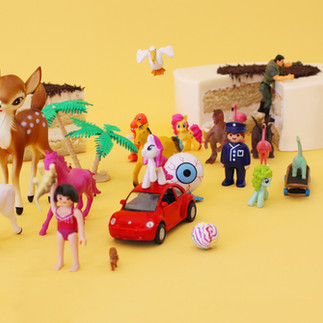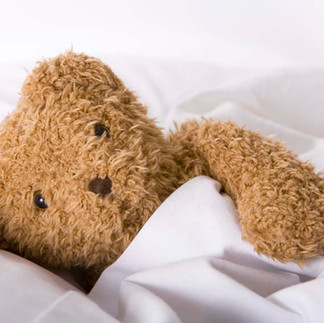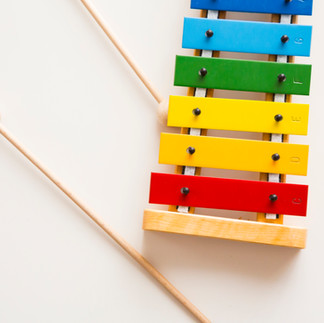Play Like No One Is Watching
- Asta Au

- Sep 5, 2021
- 4 min read
What do you first think about when the word "play" is mentioned? What are the things you associate with playing? When was the last time you played?
As a child, I played for hours without a break. I remember lining up all my stuffed animals and putting on a musical for them; or pretending to be a teacher and my plushies, the students. I could pretend to be princess warrior fairy spy with nothing but a homemade wand and a blanket cloak. Playing came naturally and easily. I could play anytime and anywhere with anything!
Somewhere along the way of growing up, play became less frequent. I became enthralled with books. Instead of hours playing, I spent hours reading (which, to me, was really fun as well). Then school became harder, and homework began to pile up. I had choir, band and clubs after school, a part time job, Chinese classes, piano lessons etc. It was hard to find time to read for leisure. Playing wasn't something I even thought about.
As I reached my later teen years and into adulthood, the idea of play became negative. Playing meant being immature and childlike. It meant the opposite of what people expected of me. I was the mature child, the rational, quiet and calm child. I was responsible, independent and knew what I needed to do. I was always aware of how people would see me, how they would judge me and what their expectations were for me. I knew what role I had to play, so childish, cute and immature things were hidden and forgotten.
Rediscovering Play
One of the very first things we did in my Expressive Arts Therapy training was play.
It was on an island, with my classmates I met two days before and was told to play together The instruction for the activity was “play for the next hour”. That was it. I remember being confused. What do you mean by play? Was there something specific we were playing? I felt like I needed more instructions.
It started off slow and uncertain. Some of my classmates were ready to jump in and some were more hesitant. Everyone's comfort level with playing was different. It took some time, but eventually the play became more lively and silly. I remember a lot of laughter and giggles. We chased each other, teased and pranked each other, pretended to be birds, made flower crowns and just frolicked around the tree. I didn’t care about other people walking by. I didn’t care if they thought we were weird. I was having fun! I was laughing!
I was playing with people I just met a couple of days ago, but it felt like I’ve known them for a while. There's a side to people that you see only when you play and decide to become birds together. The playtime brought us closer. It forged a connection in such a short amount of time.
I found that exercise challenging. To play like we did, I needed to find my inner child; to let go of what was expected of me and how I was supposed to behave. I had to make the conscious decision that I didn't care what people walking by thought about me. I had to tap into something deep inside and rediscover that childlike playfulness that I thought I had lost.
Something inside changed that day. By diving head first into uninhibited play, I had also let go of preconceived notions of what a proper functioning adult looked like. I worried less about what others thought of me. I started being vocal about my love for all things cute and fluffy. It wasn't something I needed to hide in order to fit in. Playfulness is to be embraced, not scorned and seen as immature. It reshaped my idea about playfulness. Being silly does not equate to being childish and not serious enough. I could be both playful and serious at the same time. It's not one or the other.

Playing in Expressive Arts and Healing Journey
Being playful and relearning how to
play is fundamental to Expressive Arts Therapy and in one’s healing journey. Fundamentally, play is uninhibited and in the present. A toddler doesn’t need instructions on how to play. When a child plays, their imaginations take them anywhere they want. Anything can happen in that imaginal space. Species, gender, family, appearance, language... anything can be changed from present day reality. For some children, play comes easily. Adults, though, have a harder time playing, whether it's because of preconceived notions of play (like me), or other reasons.
Play, and by extension, imagination, is a powerful tool in healing. We enter into the play space, leaving behind the literal reality and the restrictions in our everyday lives. Here in the imaginary, things that were once barriers, either no longer there or we can do something about it. In this space, we experience an alternate reality where unpredictable, unexpected and surprising things can happen. Exercising one's imagination and creativity allows people to discover a new solution to an old problem, or respond to a new situation.
For me, it was an act of letting go and embracing hidden parts. Play helped me see the world a little different, and that new perspective has allowed me to live as my authentic, unicorn loving, plushie obsessed self!
















Comments